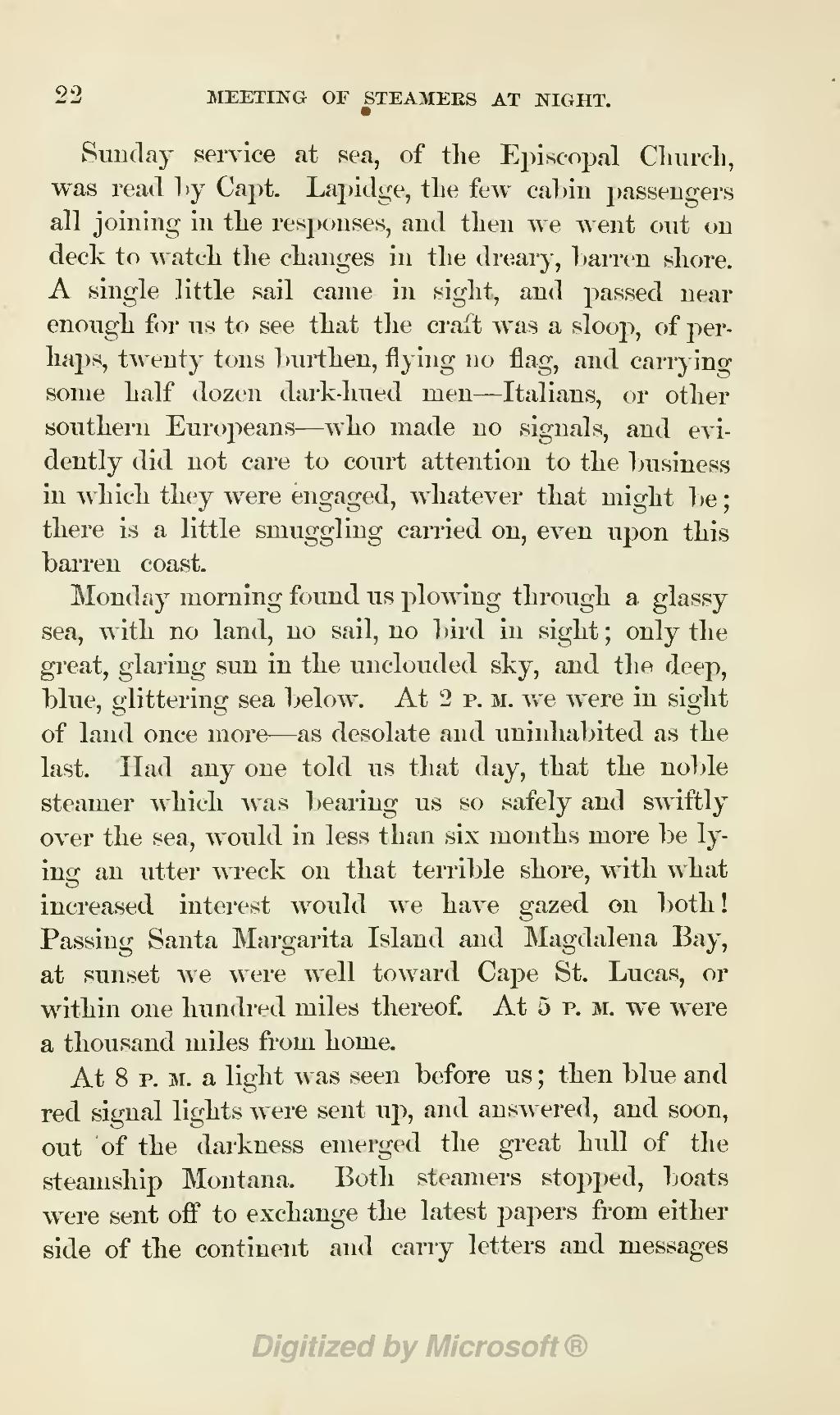Sunday service at sea, of the Episcopal Church, was read by Capt. Lapidge, the few cabin passengers all joining in the responses, and then we went out on deck to watch the changes in the dreary, barren shore. A single little sail came in sight, and passed near enough for us to see that the craft was a sloop, of perhaps, twenty tons burthen, flying no flag, and carrying some half dozen dark-hued men—Italians, or other southern Europeans—who made no signals, and evidently did not care to court attention to the business in which they were engaged, whatever that might be; there is a little smuggling carried on, even, upon this barren coast.
Monday morning found us plowing through a glassy sea, with no land, no sail, no bird in sight; only the great, glaring sun in the unclouded sky, and the deep, blue, glittering sea below. At 2 p.m. we were in sight of land once more—as desolate and uninhabited as the last. Had any one told us that day, that the noble steamer which was bearing us so safely and swiftly over the sea, would in less than six months more be lying an utter wreck on that terrible shore, with what increased interest would we have gazed on both! Passing Santa Margarita Island and Magdalena Bay, at sunset we were well toward Cape St. Lucas, or within one hundred miles thereof. At 5 p.m. we were a thousand miles from home.
At 8 p.m. a light was seen before us; then blue and red signal lights were sent up, and answered, and soon, out of the darkness emerged the great hull of the steamship Montana. Both steamers stopped, boats were sent off to exchange the latest papers from either side of the continent and carry letters and messages
